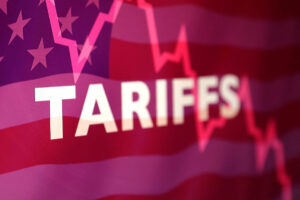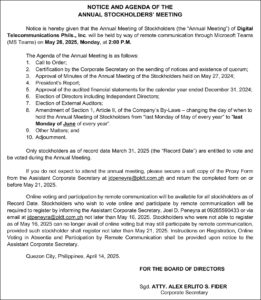Marcel Botha, CEO and founder of 10XBeta, a MedTech innovation firm and venture studio, joined MobiHealthNews to discuss the widespread and unintended consequences of tariffs imposed by the Trump administration on the MedTech supply chain.
Botha states that these tariffs will impact not only final medical products but also critical components and subassemblies, thereby hindering the ability of U.S.-based manufacturers to operate efficiently.
MobiHealthNews: How do you think the tariffs President Donald Trump has or will impose may affect the MedTech supply chain?
Marcel Botha: We’re already seeing a massive impact from the tariffs. We are seeing a couple of different things happening simultaneously. So, it’s affecting both components, subassemblies and final assemblies from coming into the U.S., not just from China but from everywhere.
Obviously, China has one of the highest tariff rates right now, but we also see a lot of different types of behavior between different geographies penalizing the U.S. back to match or impose similar tariffs.
When we look at the component and subcomponent level tariffs, these are not final products; these are products typically headed to the U.S. to be part of higher value U.S. end goods. So, it’s affecting our ability to manufacture in-country quite severely right now. Companies who serve global markets that had onshored manufacturing during the prior administration, in order to start investing in U.S. manufacturing, are pulling back that investment because if their supply chain is not 100% U.S.-based yet, they’re getting penalized for having moved their limited manufacturing efforts to the U.S. So, that is exactly the opposite effect to what was the expectation of tariffs. And we see it not just for cheap stuff; we see it for high-value, $25,000 to $40,000 pieces of medical equipment.
We are also seeing it impacting the material supply chain and adjacent supply chains to final goods. We see it reverse apply to final goods made here, traveling to Europe and other countries – high-value medical equipment that’s having added tariffs.
The U.S. healthcare system relies on reimbursements as the threshold for, “Is this a viable medical device or medical product or medical consumable, or not?” And the tariffs are disrupting those economic models from yesterday that are no longer compatible with a profitable outcome. So, either those therapies, those diagnostic tools and those consumables are going to have to negotiate new higher rates for Medicare and Medicaid, which is unlikely to happen in a timely fashion or unlikely to happen at all as different departments in the U.S. government are looking at efficiency and, you know, reduced economic impact of these choices, and/or they are going to fall away and not be available.
We’ve seen a lot of end goods not make it to the country, or subassemblies not make it to the country because people are playing a waiting game. So, what I call a siloing of all or part of products, so the system is stuck in limbo. It’s like a traditional clock that has just stopped working.
MHN: At the beginning of this year, President Trump and his partners announced Project Stargate, where these large data centers are being built to house AI. How will the tariffs affect the supply chain that would ultimately allow these data centers to be constructed?
Botha: I think tariffs will affect Stargate and all other adjacent tech businesses in the following ways: It will affect component-level assemblies and subassemblies.
If you buy from NVIDIA or TSM [Taiwan Semiconductor Manufacturing Company Limited] or other suppliers globally, and they have no onshore manufacturing in order to get reciprocal credits or forgiveness, then you are going to see an increase in infrastructure cost. You are going to see an increase in electrical costs.
I mean, Enron, who used to be the bad boys 25 years ago, modulated artificial shortages in the California supply or grid by shutting off power stations in order to push the price up artificially and then shorting it right, and that’s what most of those people went to jail for. But you are going to see that just happen automatically, like a constant pressure on electrical prices in markets where that price is not fixed.
So, I think dynamic pricing for electricity will be severely affected by the demand for AI data centers, which, in turn, looks back to alternative solar sources of energy production: solar, fusion, clean energy, wind and water. All of those have supply chains that are, at the component level, device level or product level, affected globally by the tariffs.
So, all of that stuff, no matter how clean, is becoming more expensive, more cost-prohibitive. So, they are fighting against one another. The whole idea of global trade falls apart when the flow of goods is disrupted, and we see exactly what happened during COVID. Now, it is just man-made.
MHN: What can MedTech companies do to ensure tariffs and the supply chain do not affect them as much?
Botha: Well, there are a couple of strategies. One is stockpiling. It still requires you to pay prohibitive amounts for importing products. Another is looking at tariff breaks or tariff reciprocity to see if there are any leniencies that can be negotiated with import/export exchanges.
I’ve seen this happen in other countries with luxury cars, like BMW, for instance, made in Germany, are not taxed as severely when they are imported into a country like South Africa because they also have plants manufacturing the BMW 3 Series and 4 Series in-country. So, there is a certain in-country load of credit established, goodwill and credit with tariffs against the luxury imports. So, that kind of, let’s call it bartering of tariffs, I’m sure we’re going to see some of that happening.
Stockpiling stateside; we saw this during the pandemic specifically. We need sensor X or device Y, where we call around and hit up our local supply chains and local markets to buy surplus components from the local market. The risk there, yet again, is if you, especially with MedTech, when you have a high-value resistor, transistor or sensor component, you have to watch out that what you are buying from a third-party site and not from the original manufacturing source is in fact a legitimate product and not counterfeit.
There’s a big problem with counterfeit components globally, and this strain that we see as a result of tariffs might cause stockpiling throughout the alternate sources that might be affected by quality chain of custody and quality control issues and potential conflict of goods that will have a direct impact on patient safety downstream.
Credit: Source link













